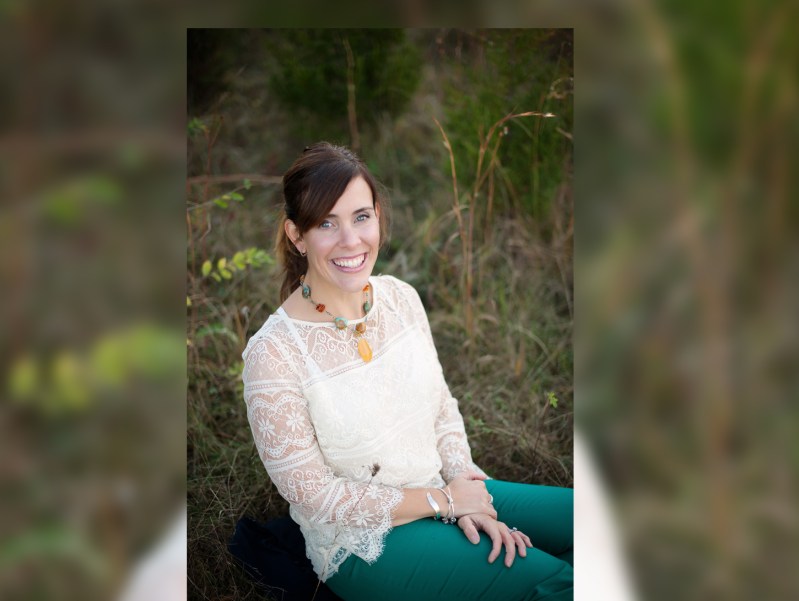About Amy
Amy has been a dietitian for 20 years and has experience in different realms including: hospital settings, product development, sales, and finally owning her own business. Amy started Kindred Nutrition 10 years ago and her private practice has grown from a sole provider to a practice that has 3 dietitians, an office manager, a certified personal trainer, and a yoga instructor. Kindred Nutrition is a specialty practice and they focus on Sports Nutrition, Eating Disorders, Women’s Health, and Digestive Health.

“I absolutely love what I do and the people I work with.”
Oola: What inspired you to focus on the field of diet and nutrition?
Amy: I have a brother who is seven years younger than me who was diagnosed with horrible food allergies as an infant. My mother got a nutritionist involved who educated her and our family. I was always athletic as well and although not formally trained believed there was a correlation between nutrition and performance. I had always thought I wanted to go to college for journalism and then my junior year of college I told my parents I wanted to go into a career that “helps people figure out how to eat based on injuries or disease.” My parents set me up with multiple dietitians to shadow and I knew that was what I wanted to do.
Oola: One of the areas you specialize in is sports nutrition. Can you elaborate on what it entails?
Amy: So much about performance depends on hydration and fuel. As a sports dietitian, we focus on current lifestyle, training, and current nutrition. We have the knowledge to understand what type of nutrition is used at each minute of physical activity and can prescribe how to eat to enhance and sustain performance. Nutrition is also very important for recovery so we also provide examples on how to eat to repair muscles. This is a science and is not a one size fits all prescription. There is nothing better than getting texts after the Iron Man’s, Marathons and more with the PR’s!

Oola: What’s a common misconception people have about working with a Dietitian?
Amy: People think they are just going to be handed a meal plan. An experienced dietitian can tell you there isn’t a one size fits all meal plan. Our job is to educate and then empower our clients to come up with a meal plan that fits their needs. The more they can learn to do this on their own the better they will sustain it.
Oola: One day we read in the news that something is bad for us, the next day we read it’s good. Is there a rule of thumb or method to use to figure out which to believe?
Amy: I always look at who published the information and try to see if there was substantial research on the subject (population size, peer-reviewed etc.). I also like to see who funded the research which could cause bias.
Oola: What’s a food that a lot of people consider healthy that is actually pretty unhealthy?
Amy: Peanut butter. Sorry, I know this is going to upset people. It’s not a superfood and although it is a “healthy fat” there’s a lot of fat per serving. Some people say they eat it for a protein source. There are many more protein choices to choose from.

“It’s not a superfood and although it is a ‘healthy fat’ there’s a lot of fat per serving.” Shutterstock/baibaz
An experienced dietitian can tell you there isn’t a one size fits all meal plan.
Oola: What’s a big trend in American diets that you think is really positive or negative?
*Amy: *“Clean eating.” Those words make me cringe. First, because I’m not sure most really understand what the true definition of clean eating is, and second, I feel it has opened up opportunities to increase disordered eating. Why do you have to label your eating?
Oola: If you could only keep one of the following items in your diet for the rest of time, which would it be: Coffee, Ice Cream, or Bacon?
Amy: Coffee!
Oola: What advice do you have to give to our readers for living life to their tastes while maintaining a healthy diet?
Amy: Try to focus on being intuitive. Truly being able to determine how hungry you are before you eat is imperative and eating to a point of being comfortable and satisfied is key. It’s important to enjoy your food and to also realize you can make or eat that food anytime you want. No food is good or bad, it’s the portions that are important.

Inside of Amy’s office!
Learn more about Amy:
Follow Amy’s current projects and social media through the links below!
Company: Kindred Nutrition
Website: http://www.kindrednutrition.com/
Twitter: http://www.twitter.com/Kindrednutritio
LinkedIn: http://www.linkedin.com/in/AmyGoldsmith
Facebook: https://www.facebook.com/kindrednutrition/
Instagram: @kindrednutrition_reel
Pinterest: https://www.pinterest.com/kindrednutritio/
Specialties: Sports nutrition, Eating Disorders, Women’s Health, Digestive Health
Designations: RD, LDN
